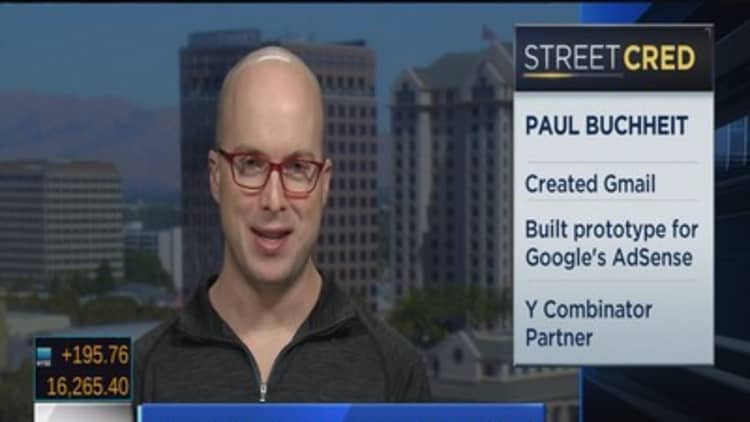Valuations of the stock of once-hot start-ups are stalling, and it's starting to look a lot easier to acquire private companies' shares at a time when IPOs are slowing.
Stock in start-ups has proved enticing to hedge funds, sovereign wealth funds and other investors, some of which bought into companies like Facebook before its initial public offering. The investors turned to private markets in the years that followed Facebook's IPO to try their hand backing a bigger portfolio of start-ups.
But investors in companies, including home dinner kit maker Blue Apron and human resources software supplier Zenefits, have marked their stakes down, reflecting equity losses, according to recent public filings. Both companies had raised funds at "unicorn" levels, meaning $1 billion or more.
Now, some investors are selling shares in privately held companies in order to shore up liquidity.
"You're seeing hedge funds starting to pull out," said Michael Moe, chief investment officer of GSV Capital, a public investment fund that buys into start-ups. "Hedge funds rushed into private markets looking to [profit]."

Even companies that have winning track records are being offered at purported discounts. One investor, who asked to not be quoted, simply called it a sign of the times.
"The overall appetite of nontraditional (venture capital) investors has certainly declined substantially from the peak unicorn period in mid-2015," said one hedge fund investor in private companies. "There are still a lot of nontraditional participants in VC financings."
Recently, a New York firm, Alexander Capital, emailed a number of potential clients, offering stock in ride-hailing start-up Lyft at what it called a 30 percent discount, according to one of the recipients. The discount likely does not reflect weakness in Lyft's business as the company's investors actually marked higher valuations on their privately held shares, according to recent filings submitted to the Securities and Exchange Commission.
Read MoreIPO market stuck in second-longest drought ever: report
Alexander Capital did not comment when contacted by CNBC.com. Lyft declined to comment. Blue Apron and Zenefits also did not comment.
Still, without knowing whether the Lyft shares being brokered were preferred or common stock, it would be difficult to tell what kind of a deal the offering represented. In January, the start-up announced $1 billion in funding from investors including General Motors, at a $5.5 billion valuation.
The source that provided CNBC.com with Alexander Capital's pitch sheet for Lyft stock said the firm was looking for investors able to commit at least $1 million to the deal. At a time when many investors in private start-ups have had to mark down their holdings, Lyft's performance stands out.

Bill Siegel, head of Nasdaq Private Market, an equity management technology platform for private companies, said that despite start-up valuations growing on markets like his, he "wouldn't characterize what's going on as a rush to the exits."
GSV Capital reported in its annual filing dated March 15 that it sold more than $1.6 million of Lyft shares in early 2016, bagging nearly $1 million in gains in the process. According to the filing, the fund saw its investment in Lyft appreciate more than 86 percent before exiting a portion of its shares.
Read More
But, as can be seen in disclosures from private start-up backers like Fidelity, which publishes quarterly updates marking stakes up and down, it is clear that not every private company has fared as well as Lyft through the recent market hiccup.
"Speculators who obtained secondary shares from angels, employees, friends and family or via acquisitions are desperate to liquidate their positions," said Elgin Thompson, managing director at Digital Capital Advisors.






